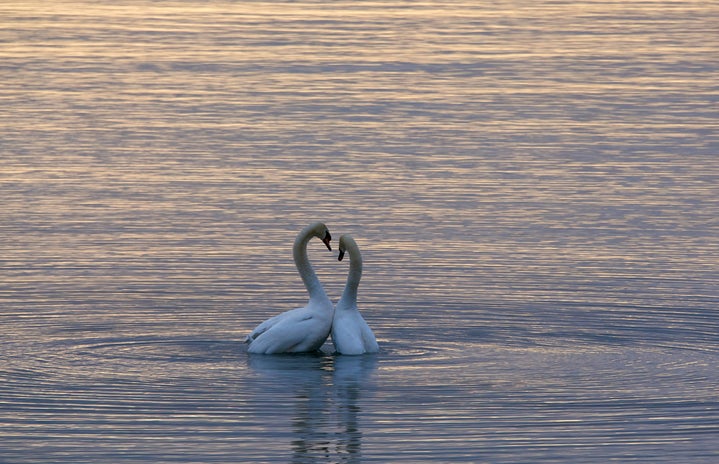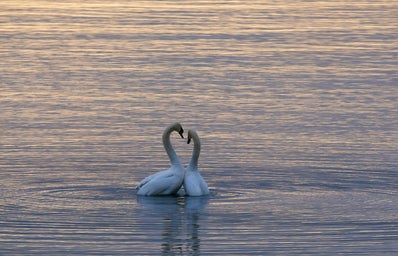Edited by: Aahana Banerjee
Imagine a toxic relationship on Euphoria. Now throw some political wokeness in there, along with the preexisting daddy issues, the constant need for validation, and a desire for desire. Add a pinch of Freud and the Electra Complex, and, to top it all off, imagine an immigrant setting where our postcolonial subject, a child of “the children of empire” is battling with the need—nay, the pressure—to prove her feminism by renouncing her need for men, to her brown, Goan, Christian, prone to Sylvia Plath-tendencies, “Kali-Durga Mummy” no less. Oh, and there’s also the anxious, suicidal best friend Sujata that our Euphoric Electra betrays.
Selma Carvalho’s Sisterhood of Swans is a book about outgrowing Paulo Coelho, or as our protagonist Anna-Marie sees it, “the idea of a soulmate”. To her, belonging is the holy grail. Belonging to a sisterhood of swans “seeking to pair for life”, to a sisterhood of immigrants, to a sisterhood of mothers, to a sisterhood of “women who’ve been betrayed by men”, to a le grand amour. But in that last desire, their species is “doomed to disappointment”.
Written as an angsty inner monologue, the narrative fluctuates between Anna-Marie’s present and her not-so-past past. “But then,” as she confesses, “memories are like mirages on isolated roads—untrustworthy,” which is perhaps why the book reads like an apologia, or, worse still, as the backstory of an (im)moral character. Anna-Marie voyeuristically reflects on her actions. It’s like when you’re dreaming. You go out of yourself and passively observe the things that happen to you, as though you were a third person in your own story. Since it is cathartic to see bad things happen to other people in a tragedy, and you are other people in your dreams, you can see the car with its headlights on squealing closer and closer, but you cannot move, you’re glued to the spot. Reading Sisterhood of Swans is like witnessing Anna-Marie’s dreams, watching her get caught in a spiralling web of insecurities, and you just can’t look away.
Fortunately for our protagonist, the car noisily screeches to a stop an inch away from her. While the men in her life disappoint Anna-Marie, she disappoints Sujata by betraying her trust. Anna-Marie and Sujata “were conjoined twins sharing a lonely heart. We realized early on that it was not the constancy of people but the permanence of place, that would save us.” Two girls, battling what they inherited from their parents, weave a comfortable world for themselves, populated only by each other. The rest of the book reads like an impulsive road trip (gone wrong) away from the comfort of this home. There is a longing for safety that haunts Anna-Marie’s relationships, but it seems as though she mistakes it for the safety she felt in Daddy’s arms, when in reality, it is the safety of her sisterhood with Sujata.
The resolution is that of this epiphany. “I’ve always thought of you as my mate for life, anyway,” Sujata says to Anna-Marie. But this realization seems to cure an entire novel’s worth of longing in one fell swoop. We are privy to Anna-Marie’s inner monologue throughout, but the fact that her whirlwind thoughts are tied neatly together at the end of the novel with the pretty bow of “I’ve come to know what it is to live” is too glass half full to digest in the span of one paragraph.
Similarly indigestive is having Jassie from Bollywood Style Salon, the incomprehensibly rude bindaas Punjabi, be the fallen sister. It fractures the bizarreness of the narrative. It is too convenient that the trope of a man leaving a woman for another woman with children becomes a recurrent motif because we’re told right from the beginning that Anna-Marie is scared of history repeating itself. “Worst of all, I’d become a single parent just as my mother had been.” While Jassie’s rudeness is a point of confusion throughout the novel, the pigeonholing of this rudeness by making her the antagonist of Anna-Marie’s story is a little too neat. But it also reveals the prejudice Anna-Marie has unconsciously been harboring against Jassie, the “filthy, no-class girl” when she has been on the receiving end of prejudice all her life. Hmm. That’s one too many full circles.
But, after all, it is a book about a “woman floundering”. Anna-Marie is “spiralling, spiralling, spiralling”. So, it isn’t surprising to see the floundering predicament shared by the rest of the sisterhood. Okay, step aside Fleabag. We’ve got a new tragicomedy in Horton. Well, comedy to the voyeuristic sadists, but tragedy to all. Who needs Euphoria Season 3, right?


